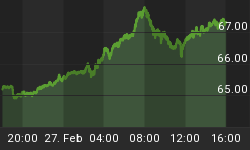As medical experts and state authorities warn about the slow pace of vaccine distribution, various companies, some with experience and some without, are trying to insert themselves in the process, as the vultures descend in the name of helping out.
Earlier this month, New York Governor Andrew Cuomo complained that at the current pace it would take years for eligible New Yorkers to receive the necessary two doses of the COVD-19 vaccine.
Over 7 million New Yorkers are currently eligible, but the state only receives 300,000 per week from the federal government.
“We are being constrained by the federal government - they increased eligibility, but never increased supply," Governor Cuomo said.
Democrat governors also sent a letter earlier this month, accusing the previous Trump administration of botching the initial vaccine rollout and asking for a green light to buy the vaccine themselves.
For U.S. states, purchasing COVID-19 vaccines directly from manufacturers is not possible due to the emergency use authorization issued by the Food and Drug Administration (FDA).
“If you are unable or unwilling to give us that supply, we urge you to grant permission for us to directly purchase vaccines so we may distribute them,” the governors wrote, then backtracking that statement once the Biden administration pledged to speed up distribution.
Former president Donald Trump promised to vaccinate 20 million Americans by the end of 2020, but fewer than three million had received one by that deadline.
The U.S. is in fourth place after Israel, the UAE and the UK in terms of doses per 100 people, with the slow pace largely attributed to squabbles between states and the Trump Administration.
Trump focused attention on what he saw as slow delivery by individual states, rather than issues at the federal level. On the other side, local authorities complained about lack of support from the federal government once the vaccines were distributed.
Local authorities have said a delay in federal funding has affected the setting up of vaccine centers and the hiring of staff to operate them.
Biden has pledged that the U.S. will administer 100 million doses of vaccine in his first 100 days in office.
Health experts say the plan is ambitious, but within reach.
The plan would require the Biden team to administer 1 million doses a day, each day, for his first 100 days, with the current average between 700,000 and 800,000 per day.
The Biden administration’s COVID action plan includes measures to facilitate the distribution of vaccines including a $25 billion package for vaccination manufacturing and distribution.
Biden’s team has proposed releasing all available vaccine doses as soon as they become available. This will require a more complex distribution network and already quite a few corporations have offered to help distribute the vaccine in order to broaden access to it.
Last week, Amazon sent a letter to Biden offering its operational expertise to shuttle coronavirus vaccines quickly across the country and “to assist you in reaching your goal of vaccinating 100 million Americans in the first 100 days of your administration.
Rivals will not want to be outdone here, either. Walmart responded immediately, saying it is ready to provide between 10 million and 13 million doses a month.
National chains such as CVS Health, Rite Aid and Walgreens are already active in vaccine distribution.
Help is also coming from some companies not usually involved in healthcare. Many of those will focus on their home state such as Starbucks, which said it would help distribute vaccines in Washington state. Honeywell said it will provide barcode scanning systems to make the process more efficient in North Carolina.
As for Amazon, some worry that the e-commerce giant could use the partnership with the U.S. government to boost its own ambitions of expanding into the $3.8 trillion health care marketplace. Still others are questioning just how big Amazon will be allowed to get at a time when tech giants have become far too powerful the world over, and what relationship it will have with the Biden Administration.
















